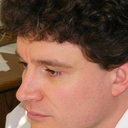Cardioprotective mechanisms of Prunus cerasus (sour cherry) seed extract against ischemia-reperfusion-induced damage in isolated rat hearts.
Mots clés
Abstrait
The effects of kernel extract obtained from sour cherry (Prunus cerasus) seed on the postischemic cardiac recovery were studied in isolated working rat hearts. Rats were treated with various daily doses of the extract for 14 days, and hearts were then isolated and subjected to 30 min of global ischemia followed by 120 min of reperfusion. The incidence of ventricular fibrillation (VF) and tachycardia (VT) fell from their control values of 92% and 100% to 50% (not significant) and 58% (not significant), 17% (P<0.05), and 25% (P<0.05) with the doses of 10 mg/kg and 30 mg/kg of the extract, respectively. Lower concentrations of the extract (1 and 5 mg/kg) failed to significantly reduce the incidence of VF and VT during reperfusion. Sour cherry seed kernel extract (10 and 30 mg/kg) significantly improved the postischemic recovery of cardiac function (coronary flow, aortic flow, and left ventricular developed pressure) during reperfusion. We have also demonstrated that the extract-induced protection in cardiac function significantly reflected in a reduction of infarct size. Immunohistochemistry indicates that a reduction in caspase-3 activity and apoptotic cells by the extract, beside other potential action mechanisms of proanthocyanidin, trans-resveratrol, and flavonoid components of the extract, could be responsible for the cardioprotection in ischemic-reperfused myocardium.



